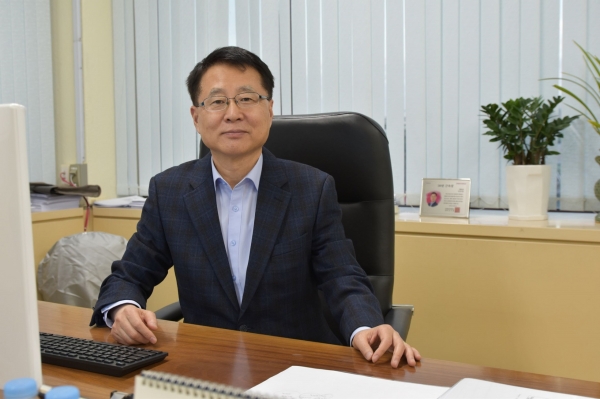
The Infectious Disease Control is an institution at POSTECH that manages the university’s quarantine and safety of Postechians in response to infectious diseases. Regarding the COVID-19 pandemic, the Infectious Disease Control is assessing the infection situation in POSTECH and reviewing quarantine regulations. The Postech Times interviewed Joon Won Park, director of the Infectious Disease Control, to take a closer look at what he does.
What are your duties as the director?
I am taking care to ensure that all members of the university are safe from infectious diseases. Specifically, I determine necessary administrative measures, draw Postechians’ attention, and encourage them to follow regulations. Regarding the current pandemic, there are many points to consider since COVID-19 is a virulent disease and the majority of the school members are living on campus.
What was the most memorable experience during work?
In the early days of the outbreak of COVID-19, one staff member and one graduate student were infected. However, members of the school complied with the measures well to prevent the spread of the virus, and the education and research of undergraduates and graduates could be continued seamlessly. I am most proud of all Postechains who cooperated well.
Do you have any work-related goals until the end of COVID-19?
Unfortunately, the COVID-19 pandemic is expected to continue this year, so the primary goal is to create a “campus safe from infectious diseases”. For effective non-face-to-face classes, a lecture platform will be established, and professors will also develop and improve teaching methods. For a long time, there has been a lot of discussion about education that concentrates on student debates, such as flipped learning. I hope this crisis can be used as an opportunity to increase the percentage of flipped learning in classes.
Any words for Postechians?
First of all, for yourself, your family, and other Postechians, please follow the preventative measures. For undergraduates, it is a shame that we cannot provide life of campus for you to learn to understand and to cooperate with others. To complement this, please read books related to humanities and society, and if possible, make an effort to discuss with friends online. For graduate students, I am worried that there may be no opportunities for you to participate in overseas academic conferences and to present or take lectures in English for the next one or two years. To solve this problem, I suggest you to try to improve your English by yourself. I hope that in the future, you are told “that’s why you are so good at these things”, instead of “that’s because you studied at university/graduate school during the COVID-19 era”.


